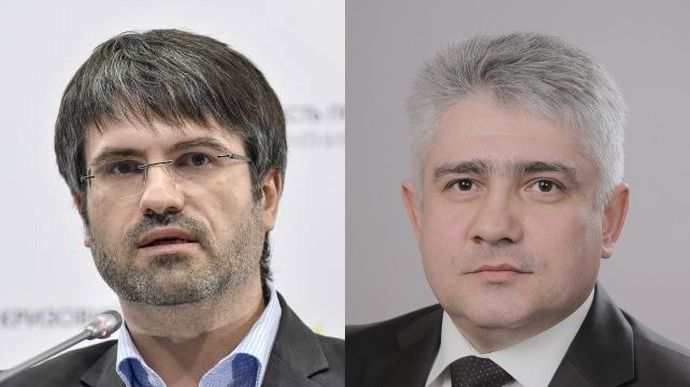Ukraine's Parliament has elected two candidates to the High Council of Justice, a key body of judicial governance, who were advocated for by Ukraine's civil society.
Those are Roman Maselko, a well-known activist for a clean judiciary (he is a lawyer who had helped Euromaidan activists resist the Yanukovych government's illegal repressions, chairman of Ukraine's National Anti-Corruption Bureau's Public Control Council, a member of the Public Integrity Council which vetted candidates for Ukraine's judicial reform, an expert of the judicial group of the Reanimation Package of Reforms, a civil society coalition and reforms watchdog) and Mykola Moroz, Ph.D. in law, associate professor of the Department of Civil Law of the Yaroslava Mudroho National Law University.
The Anti-Corruption Action Center (AntAC), a key anti-corruption NGO, stated that "the parliament chose the best candidate" – Roman Maselko, and that "the judicial mafia tried to disrupt today's vote, but this plan failed, including due to the solidarity of society."
The AntAC reminded that this event was possible because of the creation of an Ethical Council with the participation of international candidates who nominated candidates for the High Council of Justice.
Prior to the vote, many civil society leaders spoke out in support of Maselko's candidacy.
Mykhailo Zhernakov, chairman of the DeJure foundation, a key advocate for judicial reform in Ukraine, commented on the event in the following way:
"F*cking pinch me. This day has come.
The council has just appointed Roman Maselko and Mykola Moroz as members of the High Council of Justice!!!
They just took and appointed two independent, spotless candidates who simply came and won the competition, you know? And one of them is a fighter against the judicial mafia who is well-known throughout Ukraine.
In my memory, this is the first time, at least as far as top positions in the judiciary are concerned. [...]
A difficult task is still ahead for all of us - there are still 15 vacancies for members of the High Council of Justice, which must be filled with worthy people.
But today we have a great reason for optimism and for pride in the Ukrainian parliament, legal community, and civil society.
To all colleagues from the NGOs who worked on this day and night: it is a great honor to be in the same formation with you.
We will win."
On 22 February 2022, after the Ethical Council started evaluating the High Council of Justice, 10 of the 15 current members of HCJ prematurely resigned at their own request. The Supreme Council of Justice lost its quorum and ceased its work.
On May 27, the Ethics Council resumed conducting interviews for the High Council of Justice. And on July 23, President Volodymyr Zelenskyy formed a commission for the selection of candidates for the High Council of Justice and ordered to hold a competition.
Corrupted Ukrainian courts have been intervening in political processes, blocking reforms, preventing Ukraine’s development as a democratic country, and scaring away foreign investors. Ukrainian and world media have been stressing these problems numerous times. However, all the courts can’t be reformed one by one. A systematic solution was needed. The experts in the field from civil society came up with the solution a long time ago — to reform the bodies of judicial governance responsible for forming the judicial corps. These bodies are the High Council of Justice (HCJ) and the High Qualification Commission of Judges (HQCJ). Achieving this was the hardest challenge.
The HQCJ is the body responsible for the selection and qualification assessment of judges. The HCJ in its turn makes final decisions on the appointment, punishment, or dismissal of a judge.
The necessary laws for Ukraine's judicial reform were adopted in July 2021.
“Historical event” as Ukraine finally adopts all legislation for judicial reform

